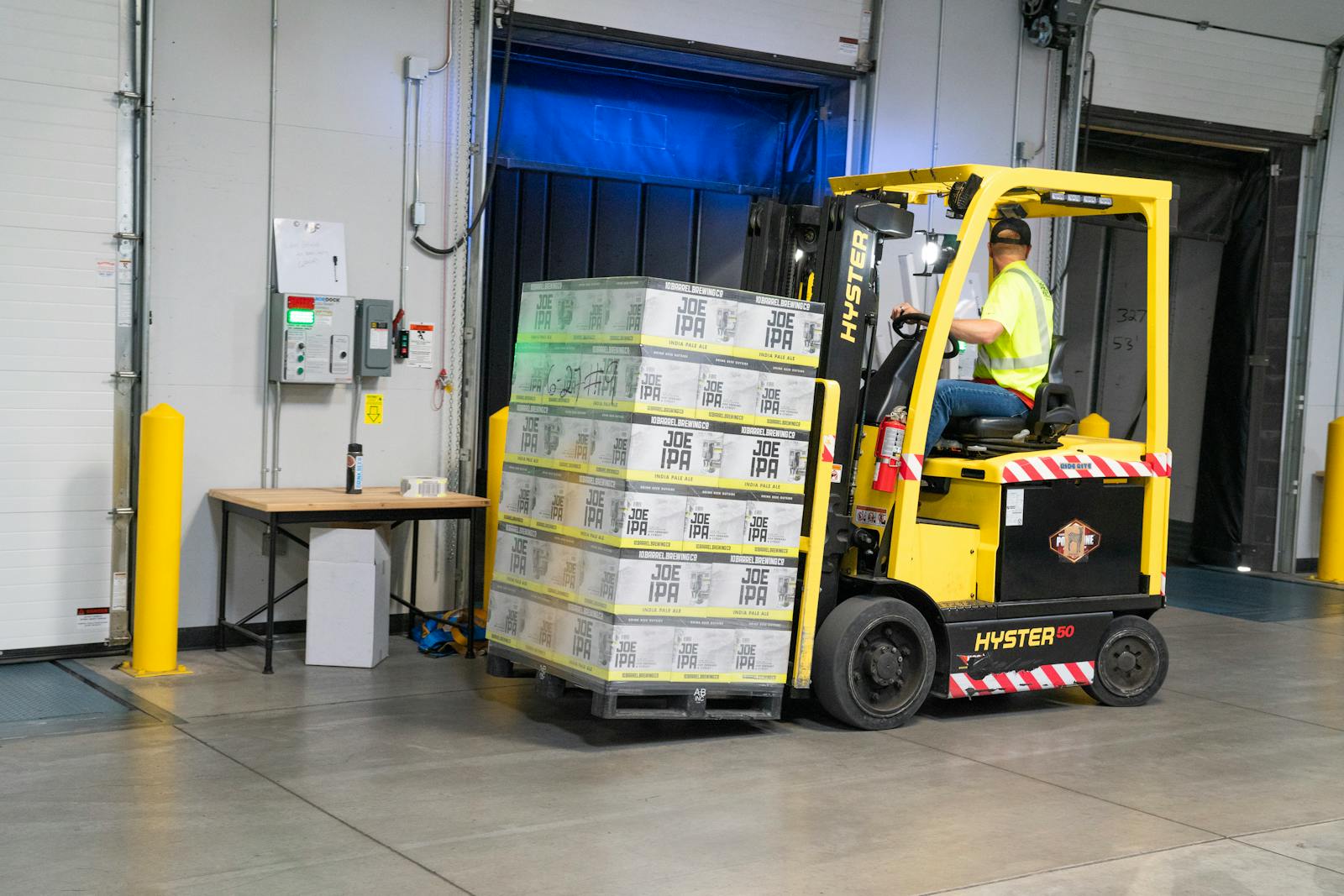In the fast-paced world of warehousing and distribution, efficiency and safety are paramount. Forklifts are the backbone of warehouse operations, moving everything from heavy pallets to delicate packages. However, many warehouse managers overlook the importance of regular forklift inspections, which can drastically affect both productivity and safety. Understanding why these inspections are a strategic investment rather than a mere formality can help businesses optimise their operations and bottom line.
The Importance of Safety
Warehouses are bustling environments where safety should always be a priority. According to the Health and Safety Executive (HSE), thousands of workplace injuries occur every year due to improper forklift operation and maintenance. Routine inspections serve as a proactive measure to prevent accidents caused by faulty equipment. A well-maintained forklift not only operates efficiently but also enhances the safety of the operator and surrounding workers. Forklift inspections typically cover critical components such as brakes, lights, and steering, ensuring that the equipment is in prime condition before it begins a shift.
Taking these precautions seriously can significantly reduce the likelihood of accidents and injuries, leading not just to a safer working environment but also a more positive company culture. When employees feel safe, their productivity and morale improve.
Cost Control
Regular forklift inspections are also a financially-savvy decision. While some might see them as an unnecessary expense, these inspections can, in fact, help avoid costly forklift repairs with regular checks. Inspecting machinery before issues escalate into major failures can save companies thousands in emergency repair costs. A sudden breakdown can lead to costly downtime, affecting not only the operations but also customer satisfaction and revenue.
Consider this: an inspection typically costs a fraction of what an emergency repair might set you back. By investing in preemptive checks, businesses can significantly lower the likelihood of unplanned service disruptions. Furthermore, reliable equipment can enhance order fulfilment speed, thereby improving customer service and potentially increasing sales due to satisfied clientele.
Compliance and Legal Obligations
In the UK, the law mandates that employers maintain safe machinery in the workplace. Non-compliance can lead to hefty fines, legal action, and insurance complications. Regular inspections ensure that your fleet meets the Health and Safety Executive’s (HSE) legal requirements. Documentation from these inspections can serve as a form of protection should any legal issues arise in the future.
Having an organised record of your forklift maintenance can showcase your commitment to safety and compliance in the event of an inspection from regulatory bodies. Not only does this improve your reputation, but it can also foster trust with your employees and clients.
Enhancing Operational Efficiency
Beyond safety and compliance, regular inspections contribute to the overall efficiency of warehouse operations. A forklift that hasn’t been properly maintained may operate sluggishly, requiring more energy and time to complete tasks. On the other hand, a well-maintained machine operates at peak efficiency, optimising productivity.
Moreover, routine checks can uncover issues that may not be immediately apparent. For example, the condition of tires, battery life, and hydraulic systems are all critical to efficient operation. Identifying potential problems before they become full-blown issues can prevent disruptions in workflow. When your machinery is reliable, your workforce can operate smoothly, enabling you to fulfil orders efficiently and effectively.
Building Workforce Confidence
Another often-overlooked advantage of regular inspections is the confidence they inspire in your workforce. When employees know they are working with safe, well-maintained equipment, they are more likely to perform their jobs with diligence and care. Employees who feel secure in their environment are typically more engaged and productive.
Furthermore, regular inspections encourage a culture of accountability. When staff members see that the equipment is being looked after, they may be more inclined to take care of their machinery and adopt safer practices, which can lead to a more conscientious workplace overall.
How to Implement a Regular Inspection Schedule
So, how can warehouses effectively implement a regular inspection schedule? Here are some actionable steps to consider:
1 Create a Checklist: Develop a detailed checklist for the elements that need to be inspected. This could include brakes, lights, mast, tires, and hydraulic systems.
2 Assign Responsibility: Designate who will be responsible for conducting these inspections. This could be an in-house mechanic or a certified external service provider.
3 Schedule Inspections: Set up a regular schedule for inspections, such as daily, weekly, or monthly, depending on the usage of the forklifts.
4 Document Findings: Keep records of all inspections, noting any issues and corrective actions taken. This documentation is beneficial for compliance and future reference.
5 Training: Ensure that all employees receive adequate training in equipment operation and maintenance protocols. A knowledgeable workforce will be better equipped to spot issues before they escalate.
By synthesising these practices with regular inspections, warehouses can ensure not just compliance but a culture that prioritises safety, efficiency, and operational excellence.
Conclusion
In conclusion, regular forklift inspections are not merely a regulatory requirement; they are a strategic investment that sets the foundation for safe and efficient warehouse operations. By prioritising these checks, you can enhance safety, control costs, ensure compliance, and boost operational effectiveness while fostering a culture of accountability among your staff.
Ultimately, the long-term benefits of these inspections far outweigh the costs, making them an essential component of any successful warehouse operation. For businesses that want to take a proactive approach to equipment maintenance, the message is clear: invest in regular forklift inspections to protect your workforce and your bottom line.








